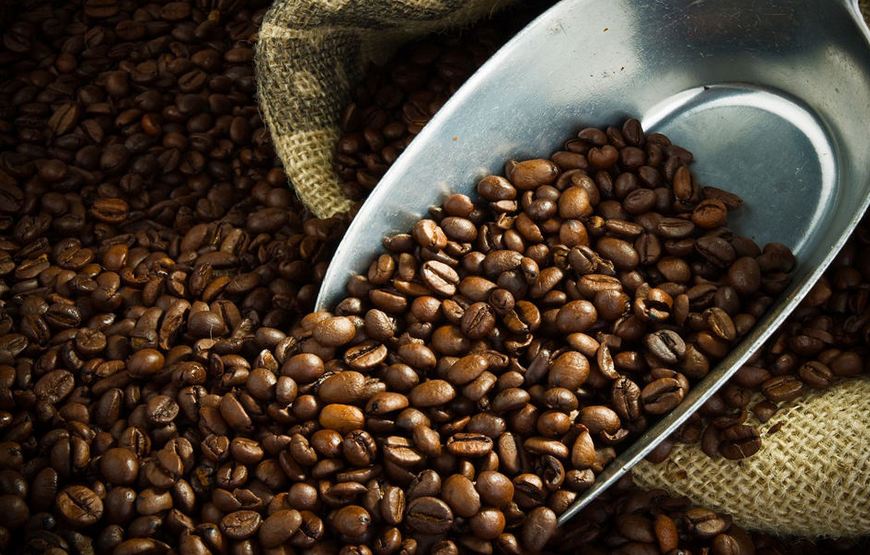Join a Danish business delegation to Kenya in November to meet your new coffee supplier!
Gain first-hand knowledge of the Kenyan coffee industry and find the right Kenyan coffee brands for your company on a Danish business delegation to the country in 2022.
The Danish Chamber of Commerce (Dansk Erhverv) and AFRICA INNOVATION NETWORK® invite Danish companies to join a coffee business delegation to Kenya in 2022. The purpose is to meet relevant local producers, suppliers and traders of coffee and provide the participating Danish companies with a unique opportunity to enrich their coffee product range for Danish consumers.
Programme highlights
- Site-visit to the Nairobi Coffee Exchange and meetings with experts and representatives there
- Individual B2B-meetings with Kenyan coffee producers and traders
- Meetings with experts from the Coffee Research Foundation and the Kenyan Coffee Directorate
- Visits to high-quality Kenyan coffee farms to see the cultivation and production process
- Meetings with experts from the African Fine Coffees Association
- Learn about sustainable coffee production methods and relevant certification-requirements
- Networking dinner at the hotel with the Danish and Kenyan business partners

Price
The fee for joining the business delegation is EURO 1,500 (ex. VAT) (Based on participation of 20 persons).
Not included in the price is airfare, accommodation and visa. However, AFRICA INNOVATION NETWORK® is ready to assist with a cost-efficient travel and accommodation offer.
Completed COVID-19 vaccination before the date of departure is a requirement for participation.
Kenyan coffee
There is a bewildering array of coffee brands in the world, but the main species are called “Arabica” and “Robusta”. Arabica is a high-quality, mild coffee well suited for blending, and Kenyan Arabica is grown on rich volcanic soils found in the highlands between 1400 to 2000 meters above sea level. It is commonly known that some of the finest Arabic coffee in the world is grown in Kenya.
The climate in Kenya is never hotter than a European summer and never cooler than the best kind of European spring with a temperature range of not more than 19C. Rainfall is well distributed throughout the year, and areas with coffee cultivation are typically characterized by broad, gently rounded ridges that do not slope too steeply into valleys, where swift perennial streams are running. The red volcanic soil is of great depth and fertility on the slopes ensuring good drainage.
Kenyan coffee production goes through a systematic protocol from seed to cup and from nursery, farm, pulping, milling and grading. Kenya coffee has been grown for over a century since 1893, when it was first introduced in Kenya. The total area with coffee cultivation is estimated at 160,000 hectares, about one third of which is the plantation sector and the rests under small holder sectors with an estimated 700,000 growers.
Focus on quality production, competitive advantages and business opportunities
The Coffee Research Foundation in Kenya is one of the best of its kind in the world. It is financed by the growers, and the foundation undertakes specialized research in all matters pertaining to the production, processing and marketing of coffee.
The Kenya Coffee College, housed within the precincts of the Coffee Research Foundation, offers both local and international training on all matters related to coffee. The highly qualified staff works to ensure that information on the best and most modern farming technologies are disseminated to the stakeholders in real time.
The Kenyan Coffee Directorate – as the regulatory authority – is charged with ensuring quality. Every local coffee miller and marketing agent is by law required to forward to the Directorate a coffee sample for every lot handled for quality analysis and arbitration in case of dispute.
The Kenyan coffee sector consists of various stakeholders. There are around 700,000 coffee farmers in a wide-ranging ecosystem and connected with other coffee processing bodies, including wet mills, through cooperatives. Wet mills provide services in cherry sorting, pulping, fermentation, drying and storage. Wet mills are also the institutions that are responsible for outbound logistics of coffee and move the coffee to other mills for further processing as well as making business deals with marketing agents and other service providers on behalf of small coffee farmers. From production till final export of the coffee, farmers are in this way connected to various institutions and actors in processing and services like research, provision of information, training of farmers etc.
Day 1:
Monday, November 15th
- 7.30 – 8.30: Joint breakfast
- 10.00 – 11.00: Meeting with coffee dealers
- 12.00 – 13.00: Meeting with African Fine Coffees Association
- Lunch (own cost)
- 14.30 – 15.30: Meeting with Kenyan Coffee Traders Association
- 16.00 – 18.00: Meeting with Werth & Partners (Lawyer company)
- 20.00 – 22.30: Joint dinner (own cost)
Day 2:
Tuesday, November 16th
● 8.30 – 9.30: Joint breakfast
● 10.00 – 13.00: Visit to Nairobi Coffee Exchange
○ Option 1: Africoff Trading Ltd.
○ Option 2: Coffee Exporters Ltd.
○ Option 3: Diamond Coffee Ltd.
○ Option 4: Tea & Coffee Connection Ltd.
○ Option 5: Thika Coffee Mills Ltd.
○ Lunch (own cost)
● 14.00 – 16.00: Meeting with Coffeee roaster, Kofinaf Co.Ltd.
● 17.00 – 18.00: Meeting with Rainforest Alliance
● 19.00 – 20.30: Relaxation at hotel
Day 3:
Wednesday, November 17th
- 7.30 – 8.30: Joint breakfast
- 10.00 – 15.00: Meeting with relevant stakeholders:
○ Option 1: Equipment producer: Brazafric Enterprises Ltd.
○ Option 2: Warehouse: DSV Logistics
○ Option 3: Agent: Coffee Management Services Ltd.
○ Option 4: Kenya Producers Coffee Union
○ Option 5. Coffee producers/farmers. Will be matched prior to departure.
● 17.00: Nairobi Int. Airport (Departure)
Participating experts and facilitators



Senior Advisor
Michael Bremerskov Jensen
mje@danskerhverv.dk
Director, Tanja K. Nielsen
tkn@nordic-african.com
CEO, Flemming Sørensen
fls@nordic-african.com


